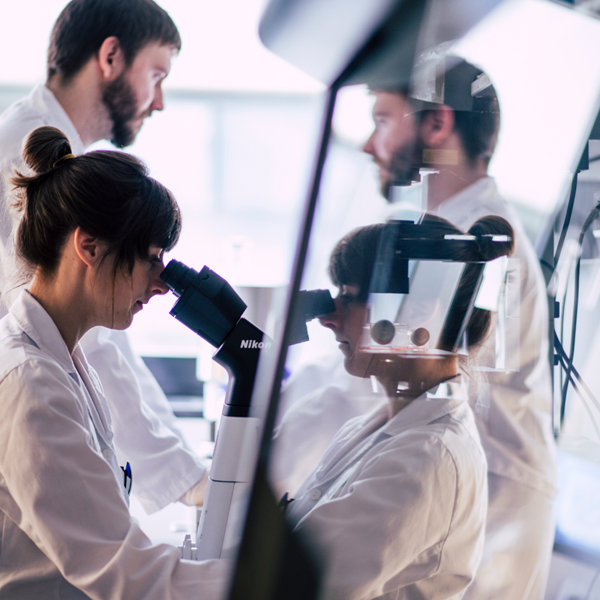-
Die Universität
- Herzlich willkommen
- Das sind wir
- Medien & PR
-
Studium
- Allgemein
- Studienangebot
- Campusleben
-
Forschung
- Profil
- Infrastruktur
- Kooperationen
- Services
-
Karriere
- Arbeitgeberin Med Uni Graz
- Potenziale
- Arbeitsumfeld
- Offene Stellen
-
Diagnostik
- Patient*innen
- Zuweiser*innen
-
Gesundheitsthemen
- Gesundheitsinfrastruktur
Metabolic and Cardiovascular Disease (DK-MCD)

The DK-MCD offers an excellence PhD program that provides an in-depth, multidisciplinary training in biomedical research in a stimulating international environment. The thesis projects focus on aspects of metabolic and cardiovascular diseases that integrate basic research and clinically-oriented sciences utilizing a wide spectrum of state-of-the-art techniques.
Research Focus
- New concepts and technologies for studying metabolic and cardiovascular diseases
- Lipid associated disorders
- Cancer and lipid metabolism
- Cardiovascular disease
Concept
The aim of the doctoral program "Metabolic and Cardiovascular Disease" (DK-MCD) is to train students in various areas of biomedicine enabling them to perform original and independent research. The research in Graz in the field of lipid metabolism is traditionally defined by highly competitive, externally funded, inter-university research networks which promote efficient use of common resources, exchange of ideas as well as technical expertise and they link research activities at the Medical University of Graz (Med Uni Graz), the University of Graz (UG), and the Graz University of Technology (TUG). Interlaboratory cooperation and communication with a broad spectrum of experimental and technical expertise have been well established and created a "laboratories without walls" environment in Graz, which is supported by the policies and infrastructure of the host institutions.
The goal of the program is to secure and maintain a long-term, internationally competitive doctoral program in biomedical research. The DK-MCD aims to establish a center of educational excellence in metabolic and cardiovascular disease that draws extensively on synergistic interactions between laboratories and enhances the national and international visibility of this consortium, particularly among PhD students. The multidisciplinary DK-MCD provides a broad translational approach to research that encompasses aspects from basic knowledge of fundamental mechanisms to medical applications. We devised the program to be attractive for students of both life sciences and medicine who intend to pursue a career in academia or industry. We offer a unique network of internationally well-known scientists and newly recruited faculty members of the three participating universities in Graz. In summary the doctoral program strives to provide excellent education in life sciences with a particular focus on biomedical research.
The DK-MCD operates on the premise that the most important factor assuring high quality of PhD education is the scientific excellence of the research projects. Thus, the DK-MCD intends to offer challenging thesis projects in basic research that are linked to potential clinical applications. Thesis projects correspond to the research interests of the faculty and are complemented by the methodological competence of the participating scientists. DK-MCD students get access to a wide range of techniques for the accomplishment of their individual project goals. The consortium comprises a broad technology platform bridging basic research with clinical medicine. Thus, DK-MCD students may choose from a wide selection of sophisticated tools to reach their respective research goals. The research activities within the program offer exciting research projects for gifted students that are interested in "traditional" and "novel" aspects of lipid-associated and cardiovascular disease as well as cancer metabolism. As research in these fields continues to gain significance for public health and the economy, this doctoral program helps to cope with the growing demand for researchers with an extensive background in cellular physiology coupled with specialized training in human metabolism under physiological and pathophysiological conditions.
Speaker
Deputy Speaker
Professor
Guenter Haemmerle PhD
Guenter Haemmerle PhD
Project Manager
Students´Speakers
- Martin Buerger
Funding










